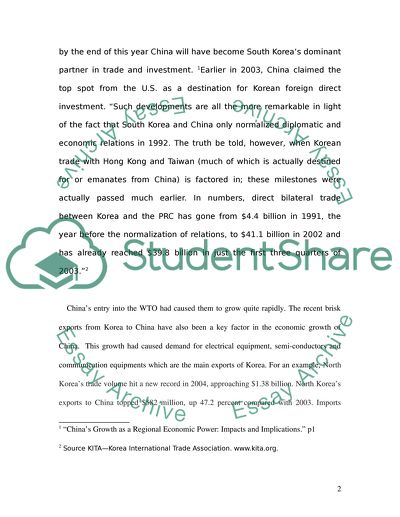Cite this document
(“Economic Relations between Korea and China Essay”, n.d.)
Retrieved from https://studentshare.org/miscellaneous/1527483-economic-relations-between-korea-and-china
Retrieved from https://studentshare.org/miscellaneous/1527483-economic-relations-between-korea-and-china
(Economic Relations Between Korea and China Essay)
https://studentshare.org/miscellaneous/1527483-economic-relations-between-korea-and-china.
https://studentshare.org/miscellaneous/1527483-economic-relations-between-korea-and-china.
“Economic Relations Between Korea and China Essay”, n.d. https://studentshare.org/miscellaneous/1527483-economic-relations-between-korea-and-china.


